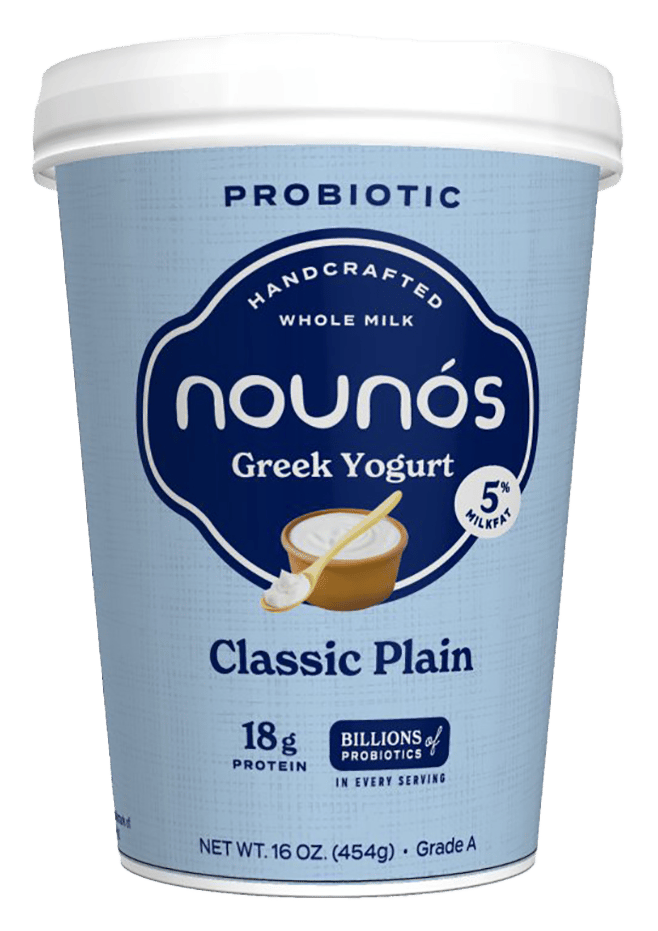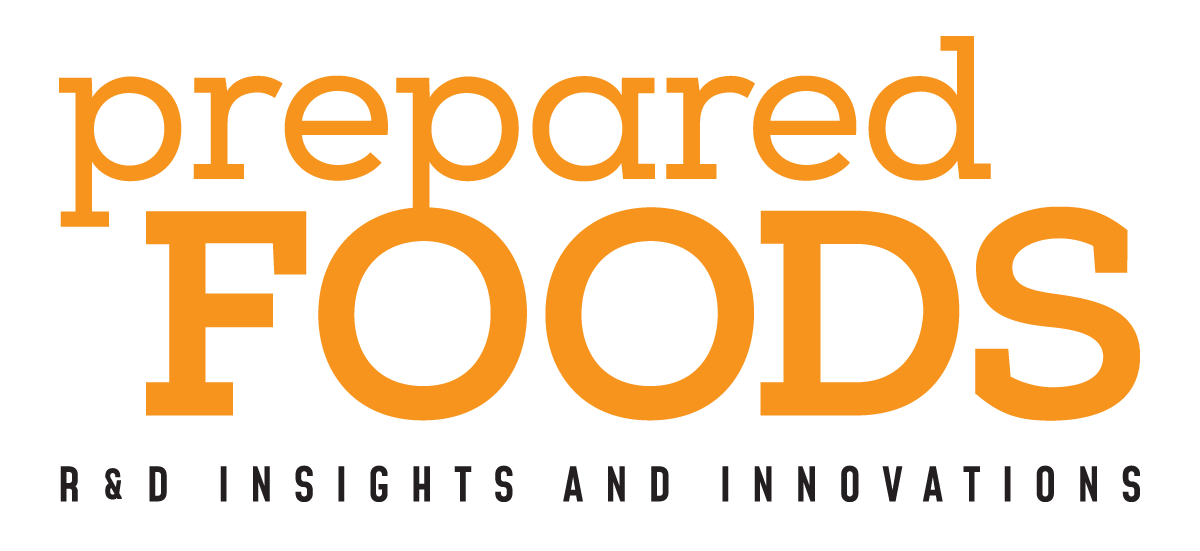Across categories, brands seek ways to weave sustainable approaches into product development. For many, packaging evolution represents an opportunity to deliver significant impact to longterm sustainable commitments. From post-consumer recycling programs, to compostable packaging made from regenerative agricultural practices, these brands are just a few shifting the trajectory of foundational industry practices.
Packing a Sustainable Punch
Takis Buckin' Ranch
The new snack packaging can be recycled via TerraCycle
As part of its continued partnership with international recycling leader, TerraCycle, all Takis Buckin' Ranch packaging can be recycled via TerraCycle. Consumers can create an account on TerraCycle.com, sign-up for the Takis® Snacks Free Recycling Program, and mail in Takis® packaging with a prepaid shipping label provided. Collectors can also earn donations for schools and nonprofits in the process.
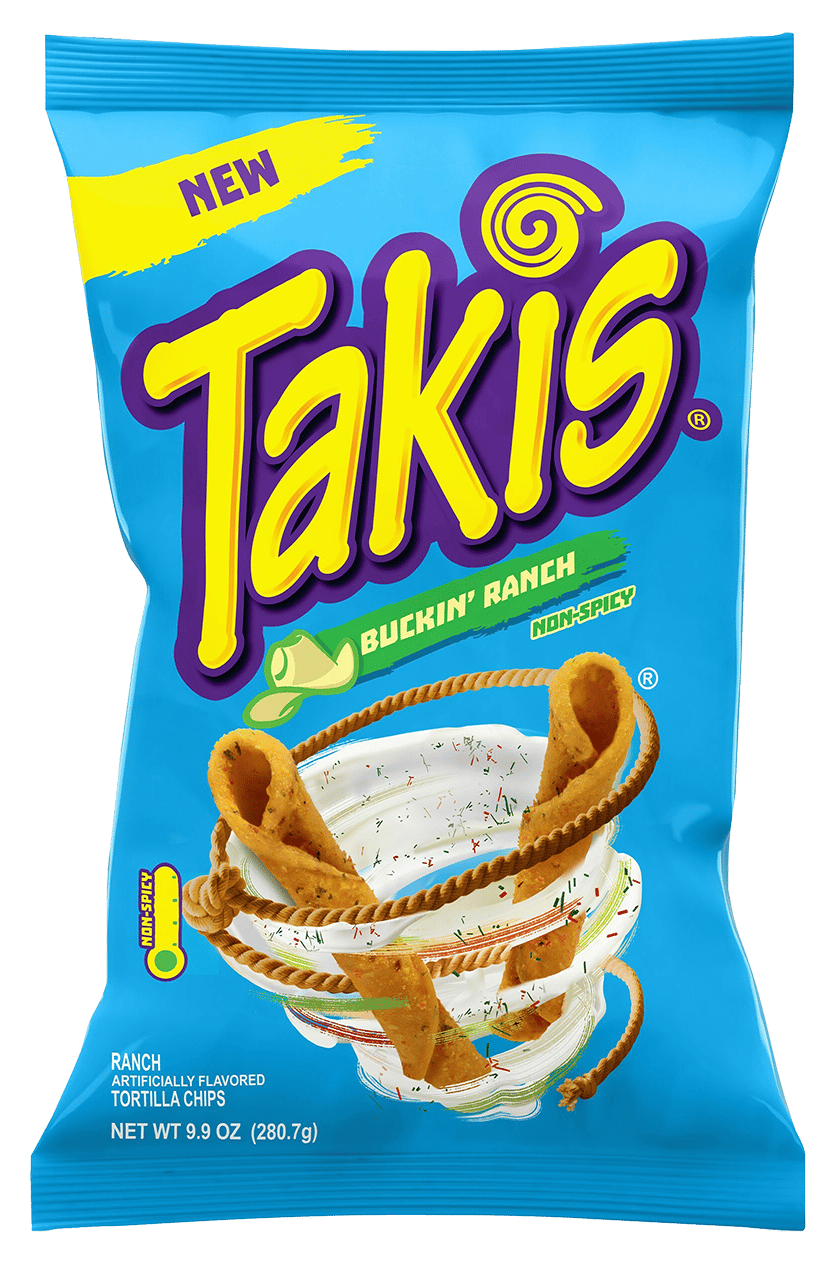
Pop & Bottle Organic Cold Brew Coffee
Brand continues sustainable packaging commitment with recycled plastic bottles
With design-forward PET bottles made with at least 50% post-consumer recycled plastic, each bottle underscores the brand's pledge to minimize waste and reduce its carbon footprint. In addition, 1% of every bottle sold also directly supports initiatives for female farmers and their communities.
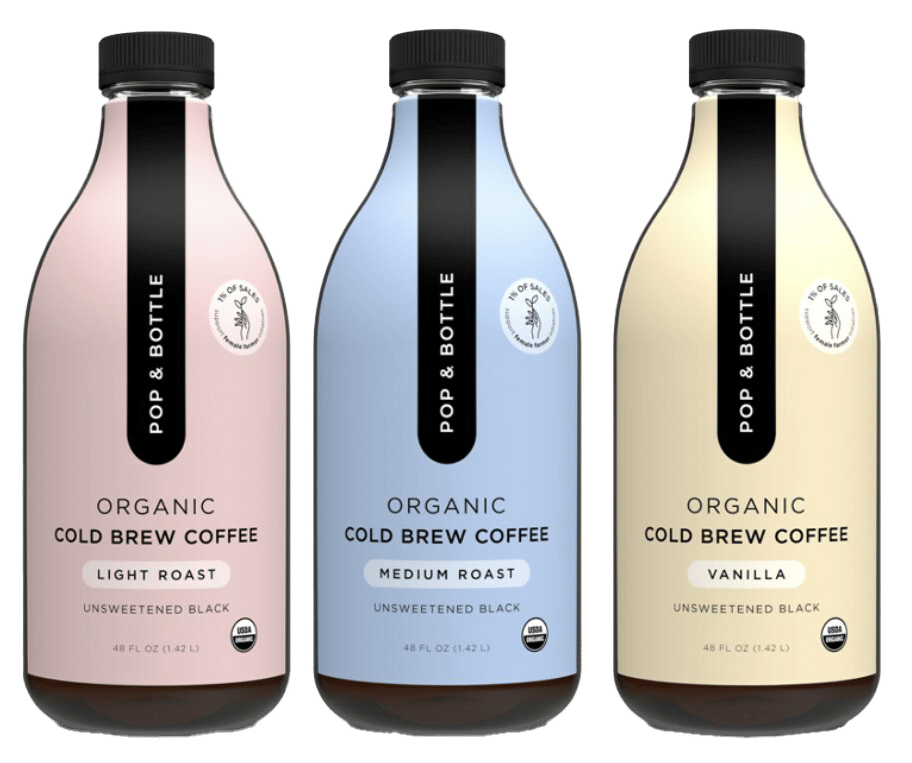
The Good Cup
Ground-breaking design named on Time's Best Inventions list
The Good Cup's integrated design removes plastic waste, bringing sustainability to the single-use packaging industry. Its many features include an all-in-one cup with paper lid, integrated sip hole for hot or cold drinks, green material such as aqueous-based coating (certified plastic-free by Flustix), recyclable in paper stream and home compostable and cost savings.
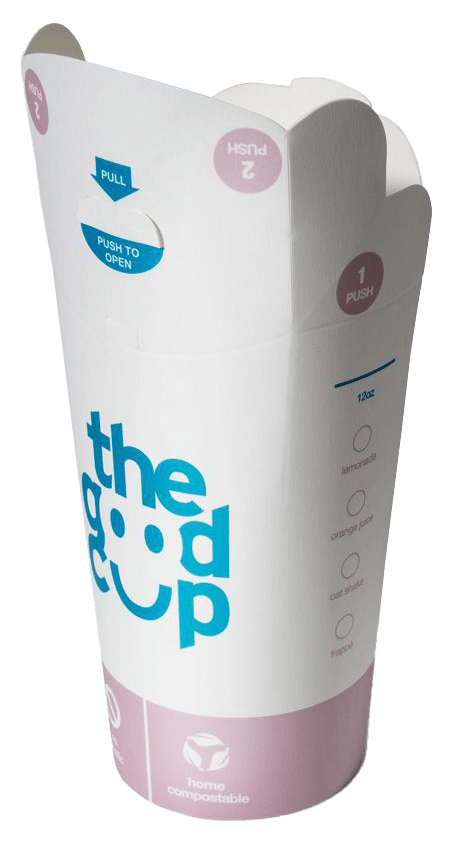
Chlorophyll Water 100% Recycled Plastic
Transition to rPET reduces plastic waste and CO2 emissions
Chlorophyll Water 100% rPET bottles are crafted from food-grade recycled polyethylene terephthalate (PET). The plastic is recycled as per the technologies approved by the USDA and European Food Safety Authority (EFSA) for food-grade recycled material and repurposed into new PET bottles, reducing the need for virgin plastic for producing PET Bottles. The bottles use CleanFlake technology, which is built on a water-based adhesive technology that separates cleanly from PET during the caustic wash stage of the recycling process
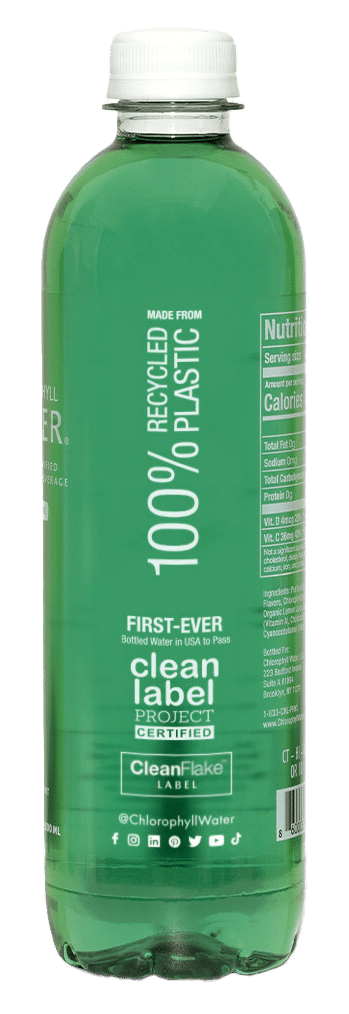
Better Earth Compostable Foodservice Products with Regenerative Ag Materials
New packaging is crafted from a blend of high-yield feedstock crops such as miscanthus, switchgrass, and sorghum grown by US farmers
Better Earth expanded its Farmer’s Fiber Collection molded packaging collection to include compostable clamshells with various sizes and compartment options as well as plates and bowls. The line also has been reformulated to increase sustainability and company support for American farmers with new materials grown using regenerative agricultural practices.
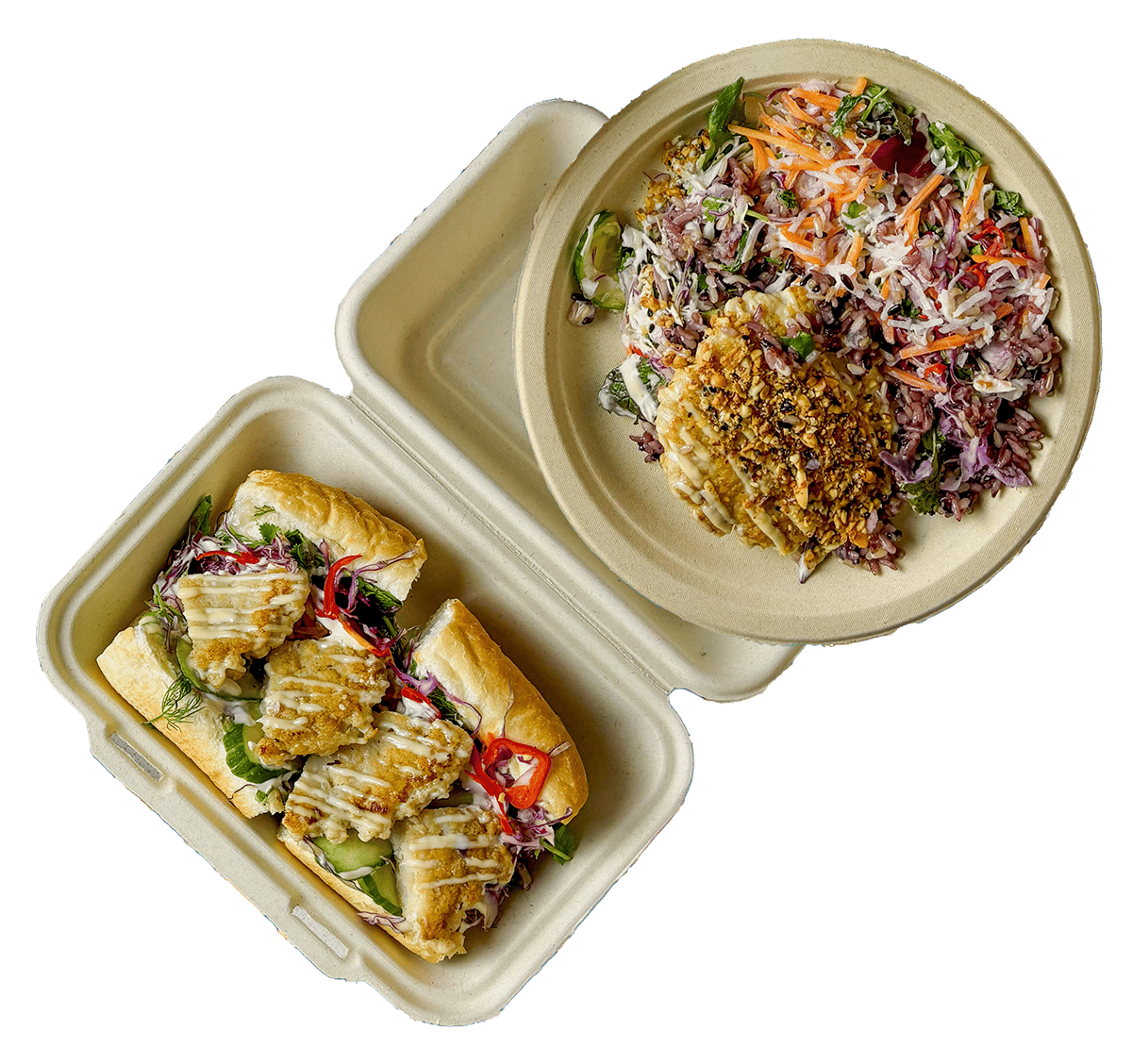
Califia Farms 100% Recycled Plastic
Refreshed packaging includes QR codes linking to an rPET landing page as well as the brand's sustainability reports
Califia Farms transitioned all of its bottles in the US and Canada to 100% recycled plastic (rPET), a move that will help reduce the company's greenhouse gas emissions by at least 19% and cut its energy use in half. The packaging update impacts the brand's broad portfolio of refrigerated plant milks, creamers, coffees, and tea. The switch reflects Califia's ongoing commitment to a cleaner, healthier planet and its efforts to curb demand for new plastic.
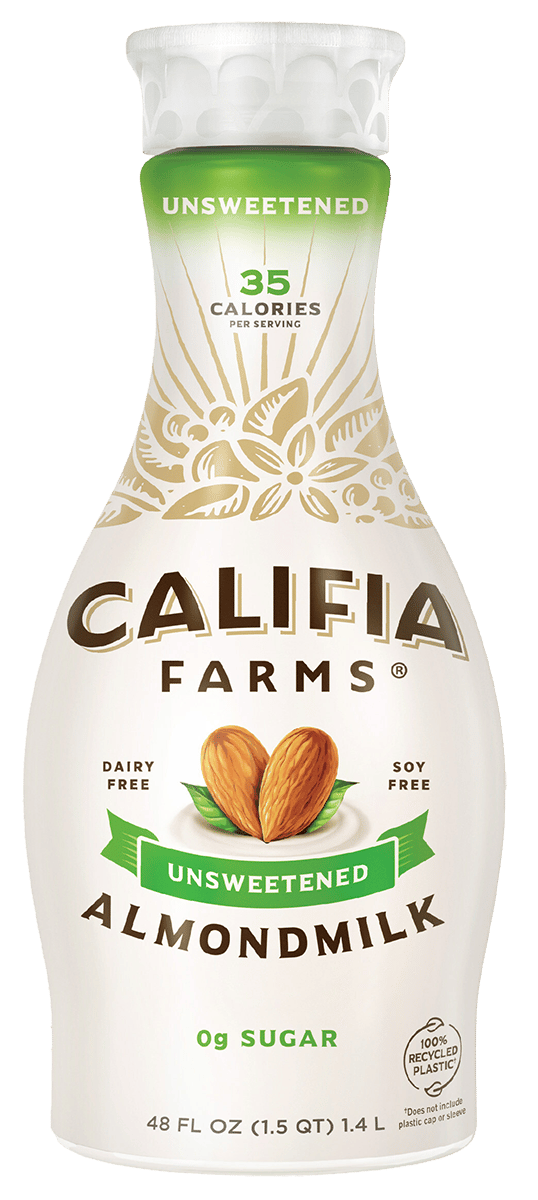
Nounós Creamery Sustainable K3 cup for Probiotic Strained Yogurt
The cardboard-plastic 16oz K3® cup from Greiner Packaging allows for easier recyclability
The cardboard wrap on Greiner Packaging’s innovative K3® cardboard-plastic combination provides stability, so the cup can be produced with particularly thin walls. By using less plastic than other solutions, it delivers a reduced CO2 footprint. The cup and wrap can be easily separated – which is important for recyclability. As the cup is always white or transparent, it produces high quality recyclates, which are not contaminated by any inks.
